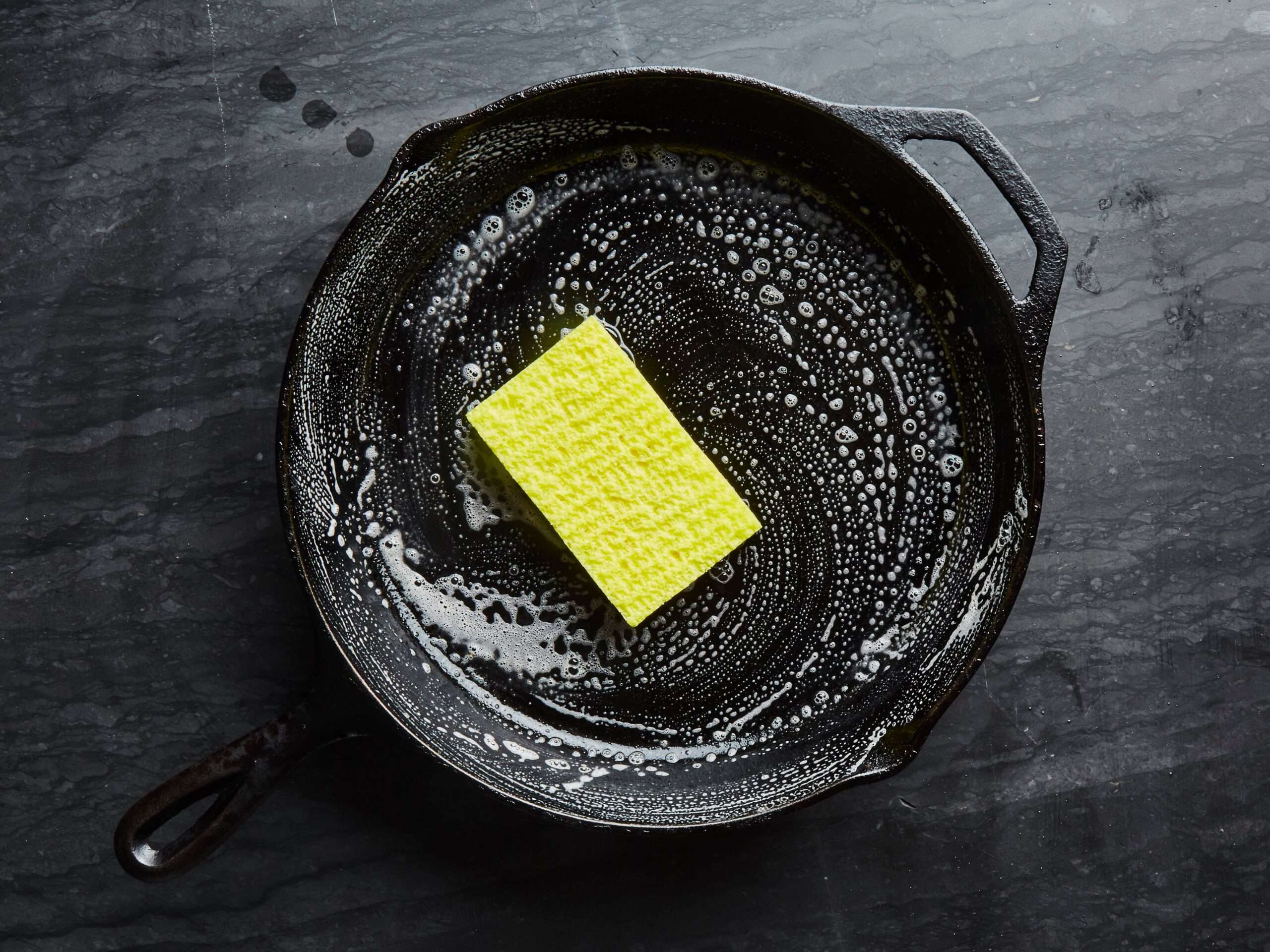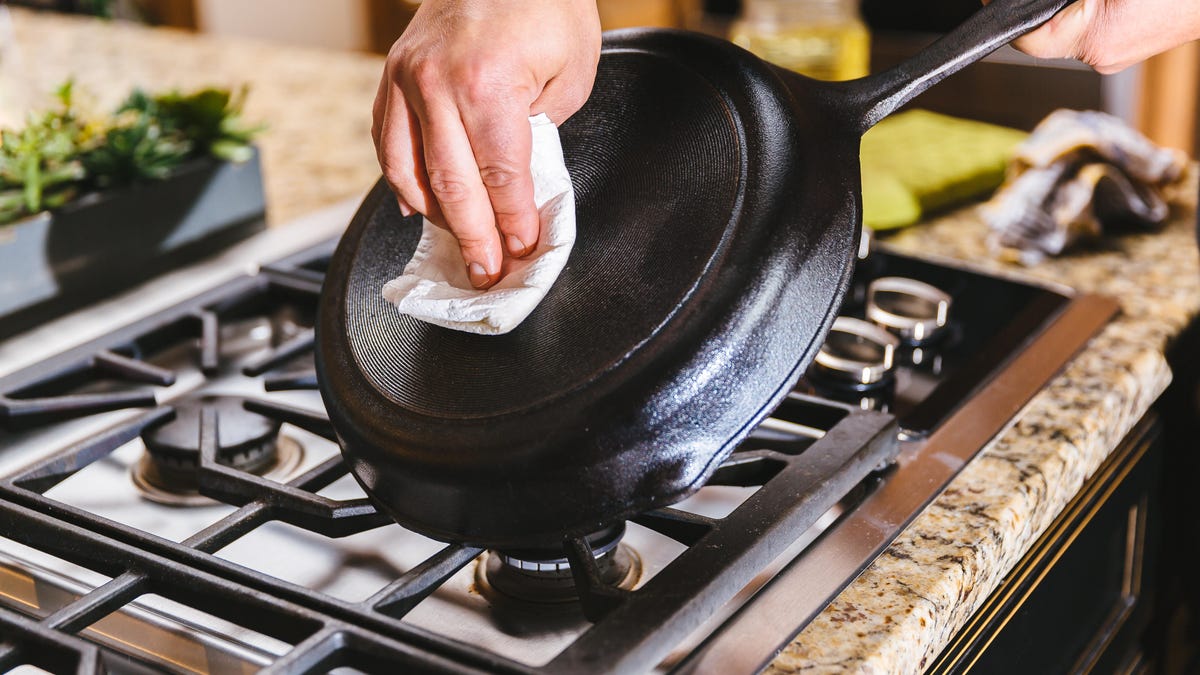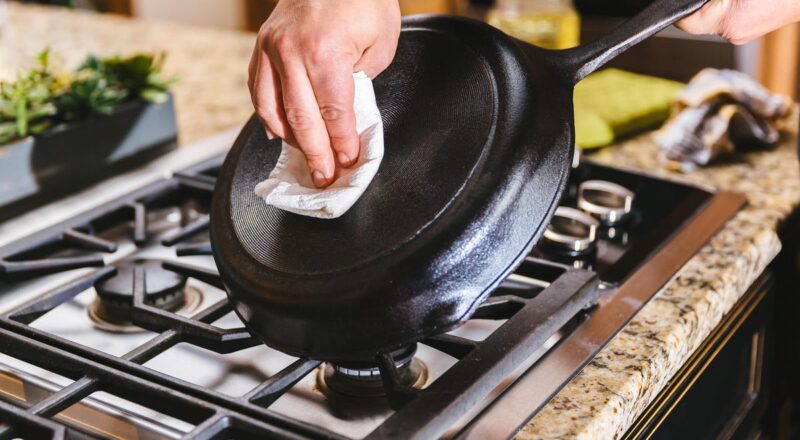Ensuring the longevity of your cast iron pan is essential, especially if you want to enjoy its benefits for years. But what happens when you start noticing unsightly flakes on your beloved cookware? It’s a common concern, and addressing it is crucial to maintaining your cast iron’s performance and appearance.

Understanding Cast Iron Flaking
Flaking in cast iron cookware often occurs when the pan’s seasoning layer begins to erode. This layer is formed by heating oil into the iron surface, creating a natural, non-stick coating. When the coating starts to peel or flake, it affects the pan’s usability and longevity.
Identifying the Causes of Flaking
Several factors can contribute to the flaking of your cast iron pan. Knowing these causes helps in preventing and addressing the issue effectively.

Improper Seasoning
One of the prime reasons for flaking is improper seasoning. If the layer is too thin or wasn’t applied correctly, it won’t adhere to the metal well. This can cause it to break off easily.

High Heat Cooking
Cooking at excessively high temperatures can also cause the seasoning to break down. Cast iron is great at retaining heat, but consistent exposure to high heat can weaken the seasoning.

Using the Wrong Oil
Not all oils are suitable for seasoning. Oils with low smoke points, such as butter or olive oil, can degrade quickly, leading to flaking. Opt for oils with higher smoke points like flaxseed or vegetable oil.
Scrubbing with Abrasive Materials
Using harsh scrubbing pads or detergents can strip away the seasoning. Gentle cleaning is key to maintaining the integrity of the layer.
Preventing Cast Iron Flaking
Preventing flaking involves proper care and maintenance of your cast iron cookware. Here are some terrific tips to keep your pan in prime condition.
Season Your Pan Properly
Ensure that you are applying a sufficient amount of oil each time you season your pan. Some experts recommend seasoning your cast iron multiple times to build up a solid layer.
Avoid Extreme Temperatures
Gradually heat your cast iron pan to avoid subjecting it to sudden changes in temperature, which can cause the seasoning to crack and flake.
Choose the Right Oils
Stick to oils with high smoke points for seasoning. Flaxseed oil, for example, has a high smoke point and forms a durable seasoning layer.
Gentle Cleaning Methods
Opt for gentle cleaning methods, like a soft cloth or nylon brush. Avoid using harsh chemicals or steel wool pads, as they can erode the seasoning layer.
Re-Seasoning Your Cast Iron
If your pan has already started flaking, don’t worry! You can salvage it by re-seasoning. Here’s a step-by-step guide to help you.
Step 1: Clean Your Pan
Scrub the cast iron pan with warm water and mild soap. Ensure you remove all the existing flaky seasoning.
Step 2: Dry Thoroughly
To prevent rusting, dry the pan completely using a towel, and then place it on the stove for a few minutes.
Step 3: Apply Oil
Coat the pan with a thin layer of high-smoke point oil, making sure to cover both the inside and outside surfaces.
Step 4: Bake the Pan
Place the cast iron pan upside down in a preheated oven at 450F for one hour. Let it cool in the oven to achieve a solid seasoning layer.
Maintaining Your Cast Iron Cookware
Consistency is key. Regular maintenance practices ensure your pan remains in its best condition.
Store Correctly
Store your cast iron cookware in a dry place. Avoid stacking heavy items on top of your pan.
Regular Use
Frequent use of your cast iron pan helps maintain its seasoning. Cooking fatty foods can contribute to the buildup of a stronger seasoning layer.
Re-season Periodically
Don’t wait for your pan to show signs of flaking before re-seasoning. Regularly re-season your pan to keep the coating intact.
Conclusion
By understanding and connecting with your cast iron cookware, you ensure its longevity and performance. Proper care, periodic re-seasoning, and gentle cleaning are crucial.
Frequently Asked Questions
What causes cast iron to flake?
The leading causes are improper seasoning, high heat exposure, using low smoke point oils, and harsh cleaning methods.
Can I fix a flaking cast iron pan?
Yes, you can re-season your pan by cleaning, drying, applying oil, and baking it.
How often should I season my cast iron pan?
It’s advisable to season your pan regularly, especially when it shows signs of wear or flaking.
For more tips on cast iron care, visit the article cooking hash browns and re-seasoning cast iron.
As an Amazon Associate, I earn from qualifying purchases.

